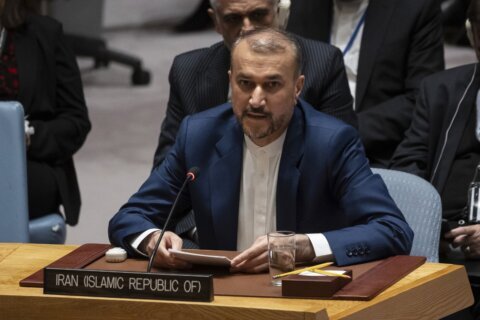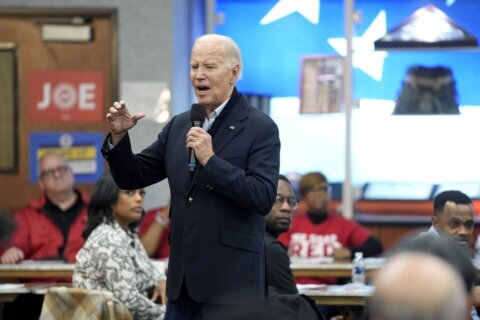CAIRO (AP) — Sudan’s Prime Minister Abdalla Hamdok on Monday announced a Cabinet reshuffle to add rebel ministers as part of a peace deal that transitional authorities struck with a rebel alliance last year.
Hamdok announced his new Cabinet, which includes ministers from the Sudan Revolutionary Front, an alliance of armed groups, in a televised news conference in the capital, Khartoum.
The peace deal was signed in October in Juba after months of negotiations and gave rebels positions in the ruling Sovereign Council and the Cabinet along with 75 legislative seats in a transitional parliament the prime minister said would be announced in late February.
Hamdok said the new Cabinet was established as a “political consensus” following torturous monthslong discussions aimed at “protecting this country from collapsing.”
Mariam al-Mahdi, deputy chief of the country’s largest Umma Party and daughter of Sadiq al-Mahdi, Sudan’s last democratically elected prime minister, was named foreign minister.
Gibril Ibrahim was appointed head of the Finance Ministry. He is the leader of the Justice and Equality Movement, which is part of the Sudan Revolutionary Front.
The prime minister kept Nasredeen Abdulbari as justice minister and Yasser Abbas as irrigation minister. The military also kept Maj. Gen. Yassin Ibrahim Yassin as defense minister.
Hamdok did not name an education minister, saying consultations are ongoing. The new 25-minister Cabinet has four women.
Hamdok dissolved his old Cabinet on Sunday in an expected move that came after the Sovereign Council appointed three representatives of the Sudan Revolutionary Front as new members.
The three rebel leaders joined the other 11 members of the council, formed in 2019 following a power-sharing agreement between military commanders and civilian protesters who spearheaded the monthslong uprising that led to al-Bashir’s ouster.
Sudan is on a fragile path to democracy after a popular uprising led the military to overthrow longtime autocrat Omar al-Bashir in April 2019. A transitional military-civilian government is now in power, trying to end decades-long rebellions in various parts of the country.
Reaching a negotiated settlement with rebels in Sudan’s far-flung provinces was a crucial goal for the transitional government. The deal reached last year was hailed as a step toward reviving Sudan’s battered economy and rejoining the international community after years of isolation.
But the government failed to reach similar peace pacts with two other key armed factions, including Sudan’s largest single rebel group, the Sudan Liberation Movement-North led by Abdel-Aziz al-Hilu, and the Sudan Liberation Movement-Army, which is led by Abdel-Wahid Nour.
The transitional government faces steep challenges in transforming Sudan’s economic system amid a huge budget deficit and widespread shortages of essential goods. Prices for fuel, bread and medicine have soared in recent weeks, triggering protests across the country.
Sudan is $70 billion in debt, the prime minister said Monday.
The appointment of al-Mahdi and Ibrahim as foreign and finance ministers could create some anxiety within the international community, given their Islamist-leaning background. The transitional government seeks better ties with the U.S., Israel and the West.
Cameron Hudson, a senior fellow with the Atlantic Council think tank and a former U.S. diplomat, said the two appointments are a “very risky and somewhat perplexing move,” because they occupy the two most important Cabinet positions that donors must have faith in.
Copyright © 2024 The Associated Press. All rights reserved. This material may not be published, broadcast, written or redistributed.







